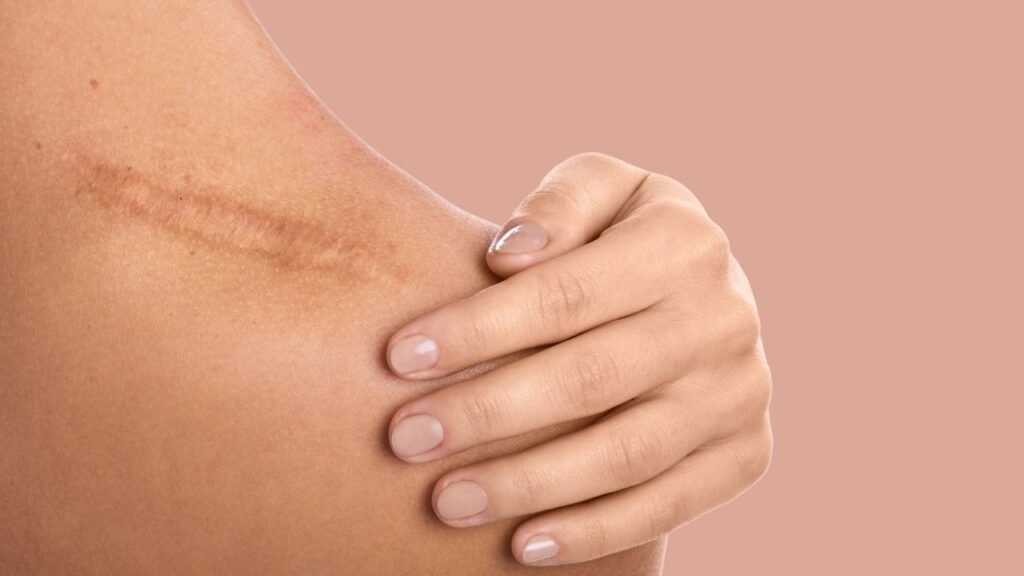Table of Contents
Overview
Eczema is a skin condition that makes it itchy. The barrier function of the skin gets broken, and the skin becomes sensitive. During the early years of childhood, eczema is common. It also happens to persons who have a family history of this skin disease.
On the bright side, it is not a contagious skin condition. We can cure inflammation with medication and treatment. Moreover, eczema does not harm the rest of the body.
In India, there are more than ten million cases per year. In this case, it is crucial to know about this condition, its causes and some best treatment options.
What is Eczema?
Eczema is a skin condition that results in red, dry and itchy skin. It is a non-contagious disease and doesn’t spread from one person to the other. Products like nuts or dairy products can stimulate the symptoms of eczema and make it worse.
The symptoms for children are rashes around the knees, elbows, wrist, neck and pelvic region. Children may also develop lichenification. Infants show symptoms on their scalp and cheeks. Due to severe itching, infants’ sleep may be affected.
In the case of adults, the rashes cover almost the whole body. The skin becomes very dry in the affected areas.
If you have eczema, do not subdue the itchiness on your own. You need to take professional help for its treatment. Negligence of it can cause severe problems and worsen the condition.
Moreover, if it is left untreated, then the symptoms will worsen with time. Avoid scratching the affected area, as it may lead to a skin infection. You need intensive care if you have severe eczema conditions.
What are the Causes of Eczema?
The exact origin of eczema is unknown, although many health care providers think it is a result of a complex interplay between hereditary and environmental factors.
Besides, when one or both parents have eczema or similar atopic disease, their children are more likely to acquire it, too. The risk increases even more if one or both parents suffer from an atopic disorder.
Eczema symptoms may be exacerbated by certain environmental variables. These are a few examples:
- Irritants: soaps, detergents, shampoos, disinfectants, fresh fruit, and vegetable juices are examples of these.
- Allergens: Eczema may be brought on by dust mites, pets, pollen, and mould, to name a few triggers. Allergic eczema is the medical term for this condition.
- Microbes: Staphylococcus aureus and other bacteria, viruses, and certain types of fungus are examples of pathogens.
- Hot and cold temperatures: Eczema flare-ups may be triggered by extreme temperatures, humidity, and sweat.
- Foods: Eczema flares may be triggered by foods such as dairy products, eggs, nuts & seeds, soy, and wheat.
- Stress: Eczema isn’t caused by this, although it may exacerbate the symptoms.
- Hormones: When a woman’s hormone levels change, such as during pregnancy or throughout the menstrual cycle, she may have more eczema symptoms.
How to cure Eczema permanently?
A dermatologist, allergist, or primary care physician can assist you in finding the best therapy for your eczema. It’s also a good idea to use more than one therapy at a time.
Here are a few possibilities to consider:
Medication
The irritation may be relieved by OTC antihistamines taken orally. Histamine, the chemical that sets off allergic responses, is blocked by these medications. Some examples are as follows:
- Cetirizine (Zyrtec)
- Diphenhydramine (Benadryl)
- Fexofenadine (Allegra)
- Loratadine (Claritin)
Antihistamines may make you drowsy, so use them sparingly if you can avoid them.
Itching and scaling may be relieved with cortisone (steroid) lotions and ointments. However, long-term usage may result in side effects, such as:
- Thinning of the skin
- Irritation
- Discoloration
Over-the-counter options include hydrocortisone and other low-potency steroids. A doctor may give high-potency steroids if your body doesn’t react to low-potency ones.
Oral corticosteroids may be prescribed in extreme instances by a physician. Side effects, including bone loss, are possible.
A doctor may prescribe an antibiotic as a topical or oral treatment for an illness.
Prescribable medicines known as immunosuppressants work by preventing the immune system from becoming overactive. Eczema flare-ups are less likely to use this method. The risks of cancer, infection, high blood pressure, and renal disease are raised as a result of the medication’s side effects.
Therapies
When it comes to treating eczema, light treatment, also known as phototherapy, utilizes ultraviolet light or sunlamps to suppress the immune system’s reaction. Eczema may be lessened or cleared completely with this therapy, which needs several sessions. As an added benefit, it helps keep bacterial skin infections at bay.
Lifestyle Changes
Stress may set off or aggravate a variety of health problems for people. Among the methods for reducing stress are the following:
- Taking time to practice deep breathing
- Doing a little bit of yoga
- Meditating
- Listening to soothing music
- Prioritizing a sound sleep
- A cold compress or a 15- to 20-minute soak in a warm or lukewarm bath may ease itching.
Alternative treatments
You may get relief from the symptoms by using complementary and complementary therapies. Always consult with your doctor before starting an exercise or herbal supplement regimen due to the possibility of side effects. Some well-known natural cures include:
- Oolong, green, or black tea
- Sunflower and borage oils; primrose oil; coconut oil
- Acupuncture
- Aromatherapy
- Meditation, yoga, progressive muscle relaxation, and guided imagery are examples of relaxation methods.
How do I stop Eczema from coming back?
Preventing dermatitis flares and minimizing bathing’s drying effects may be accomplished by following these suggestions:
- Keep your skin hydrated by moisturizing at least two times each day. Lotions, ointments, and creams all serve to lock in moisture. Try out several products until you find one or a few that work well for you. Preventing the onset of atopic dermatitis in your child may be as simple as applying petroleum jelly to the skin.
- Find and avoid things that aggravate your illness. Sweat, stress, obesity, soaps, detergents, dust, and pollen are all factors that may aggravate a skin response. Limit your exposure to the things that set your alarm off.
- Certain foods, including eggs, milk, soy, and wheat, may cause flares in infants and children. Consult your child’s doctor to know about food sensitivities.
- Cut down on the time you spend in the bath or shower. Take just a 10 to 15-minute shower or bath each time. Use warm water instead of hot.
- Put on rubber gloves and take a bleach bath. According to the American Academy of Dermatology, taking a bleach bath may help reduce the frequency of flare-ups. A bath with diluted bleach kills bacteria on the skin and protects against other infections. Fill a 40-gallon (151-litre) bathtub halfway with warm water, then add 1/2 cup (118 millilitres) of non-concentrated household bleach. A standard-sized bathtub filled with overflow drainage holes with water is used for these calculations.
- Allow yourself a 10-minute soak, starting at the nape of the neck and working your way down. Avoid submerging the head in the water. Bleach baths should only be taken once or twice a week.
- Make sure to only use mild soaps. Soaps that are gentle on the skin should be used. Antibacterial and deodorant soaps can strip your skin of even more natural oils and leave it feeling tight and flaky.
- Make sure you’re completely dry before you continue. Dry your skin with a soft towel after bathing, and then moisturize while it’s still damp.
Conclusion
Eczema is a skin condition that can worsen if not treated or managed on time. Our diligent efforts have resulted in scientific discoveries and technology that are now accessible to our patients. New medicines, technologies, and clinical research studies are often available to our patients first.
You can book an appointment to consult with our dermatologist and Hair transplant surgeon. They will suggest the best treatment for eczema.





